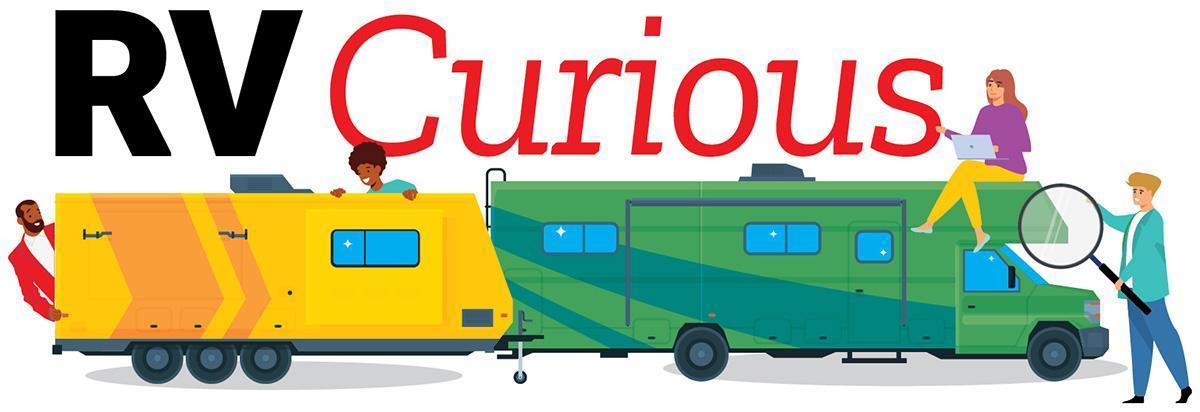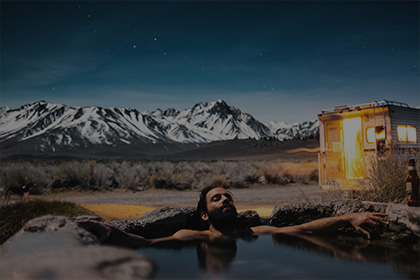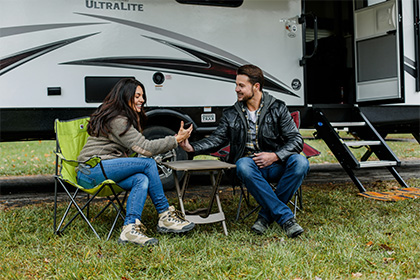

Understanding RV Insurance Coverages
One of the most important considerations in taking the leap into RV ownership is RV insurance. For many, insurance might be daunting in the first place, so it is very important to know what kind of coverages to be looking for when you take out a policy.
#1 Not all RV policies are created equally
To properly insure your investment, seek out specialized RV insurance. There are numerous carriers that would be happy to insure your RV, but they will likely be insuring it the same as they would a normal automobile. This means that the RV itself may not be covered with the best available coverages, nor all the personal items that you might bring into the RV. We will get into more details on that, but just make sure to ask your agent if they are an RV specialist.
#2 The essentials—liability and physical damage coverages
Any motorized vehicle insurance policy will have two main parts: liability and physical damage. Liability coverage protects you as the driver if you cause injury or property damage while operating the vehicle. States have different minimum requirements for liability coverage, but when it comes to RVs, consumers should carry much higher limits. The size and weight of the unit would likely cause more damage in the event of an accident than the benefits state minimums would compensate, so discuss the options best suited for you and your RV.
Physical damage coverage will cover repairs or potential replacement of the RV resulting from covered risks, such as accidents, theft, or weather. A deductible is your out-of-pocket cost at the time of a covered loss, to make you ‘whole’ again.

#3 Peace of mind while camping
We established the coverages that protect the RV while it is in operation, but what happens when you park and set up camp? This is another important coverage that is provided by a specialized RV insurance policy--campsite or vacation liability. Imagine a typical camping setup: the stairs are extended from the RV, a table and chairs surround a fire ring. These items can easily become trip and fall hazards for other visitors in the RV park. Campsite or vacation liability within a RV policy would respond if you are liable for another’s injuries that may occur around your setup.
#4 Protecting your ‘stuff’
There are plenty of personal items RVers bring with them to enjoy life on the road, but they are usually the most overlooked. Imagine packing your RV for a road trip and all the items you haul into the unit to create your home away from home. Many things might come to mind, but bedding, clothing, kitchen supplies, digital devices, and bicycles might be just the beginning of the list. Ultimately, personal items in the RV may include anything that would ‘fall loose’ if you were to turn your rig upside down—anything that falls out and is not permanently attached.
The question becomes how to protect those items against incidents like fire, weather events, and more. Under a specialized RV policy there will be a line item for personal contents, typically in increments of $1,000. If you have high-value items, make sure to inquire about options for those. This coverage usually accounts for a small portion of the over RV policy premium, so make sure you complete a thorough inventory.
#5 Living on the road—full-time RVing

For more and more RVers, the allure of life on the road may lead you to ditch your ‘sticks and bricks’ entirely. Before you jump into the full-time RV lifestyle, do your research. When it comes to your insurance, the biggest issue when you no longer have a homeowner’s policy is your personal liability. A specialized RV insurance policy may have an option for full-timer’s liability. This coverage would act like personal liability on the home policy, protecting you if you are at fault for someone else’s injuries. A common example would be your dog biting and causing harm to another, in this case the full-timer’s liability would likely respond. Other occurrences could be someone tripping on your stairs or hitting their head on your awning.
When downsizing into an RV full-time you may find yourself needing to put personal belongings into a storage facility. Some RV insurance companies will offer coverages for items in a secure commercial storage facility, away from the RV in case they are lost in a covered event like a fire.
#6 Buying new? Get total loss replacement coverage
If the unthinkable happens, it is imperative to have the best coverage possible. If you are purchasing a new, untitled RV ask about total loss replacement coverage with your agent. Under this coverage, if the RV is deemed a total loss because of a covered peril in the first five years of your policy, the insurance carrier will purchase for you a new RV, as close as possible to your former unit.




